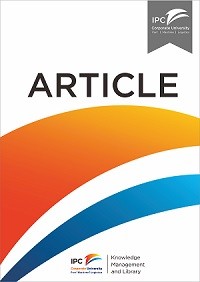Article
A systems-based approach for city logistics decision making
This paper presents a systems based approach for the city logistics decision making. Using this approach, we present the layout of a simulation model called CILOSIM (CITY‐LOGISTICS‐SIMULATION). CILOSIM encapsulates three sub‐models namely Goods to Vehicle Assignment model, Goods movement model and Impact assessment model. The Goods to vehicle assignment model allocates commodities to vehicles. The Goods movement model performs the scheduling and routing of goods vehicles from the source of origin to source of destination. The routing and scheduling decisions for vehicles are done taking into account the latest traffic conditions existing on the network. Finally, Impact assessment model evaluates the impact of goods movement on city environment and society. The advantage of using the systems approach is that it explains the dynamic and complex nature of city logistics in terms of cause and effect variables. Another advantage is that it permits the user to have a global view of city logistics problems and provides possible solutions in terms of few system variables.
Ketersediaan
Informasi Detail
- Judul Seri
-
Journal of Advances in Management Research
- No. Panggil
-
ATC LO PRO a
- Penerbit
- France : Emerald., 2006
- Deskripsi Fisik
-
13 p.
- Bahasa
-
English
- ISBN/ISSN
-
-
- Klasifikasi
-
LO
- Tipe Isi
-
-
- Tipe Media
-
-
- Tipe Pembawa
-
online resource
- Edisi
-
Vol. 3 Issue: 2, pp.7-17
- Subjek
- Info Detail Spesifik
-
-
- Pernyataan Tanggungjawab
-
Jean‐Marie Proth
Versi lain/terkait
| Judul | Edisi | Bahasa |
|---|---|---|
| Hybrid analytical hierarchy process model for supplier selection | Vol. 108 No. 1, 2008 pp. 122-142 | en |
| A review of container terminal simulation models | VOL. 38, NO. 5, 523–540 | en |
| The Handbook of logistics and distribution management | en | |
| Logistics Versus Supply Chain Management: An International Survey | Vol. 7, No. 1 | en |
| A conceptual framework for assessing strategic packaging decisions | Vol. 6 Iss 1 pp. 51 - 60 | en |
| The role of marketing in supply chain management | Vol. 30 Issue: 9 | en |
| Dyadic integration of the performance management process: A delivery service case study | Vol. 37 No. 7, 2007 | en |
| Lean production and business performance: international empirical results | Vol. 23 No. 3, 2013 pp. 218-233 | en |
| Airfreight Forwarding : The Practitioner's Definitive Guide | 3rd edition | en |
Lampiran Berkas
Komentar
Anda harus masuk sebelum memberikan komentar

 Karya Umum
Karya Umum  Filsafat
Filsafat  Agama
Agama  Ilmu-ilmu Sosial
Ilmu-ilmu Sosial  Bahasa
Bahasa  Ilmu-ilmu Murni
Ilmu-ilmu Murni  Ilmu-ilmu Terapan
Ilmu-ilmu Terapan  Kesenian, Hiburan, dan Olahraga
Kesenian, Hiburan, dan Olahraga  Kesusastraan
Kesusastraan  Geografi dan Sejarah
Geografi dan Sejarah